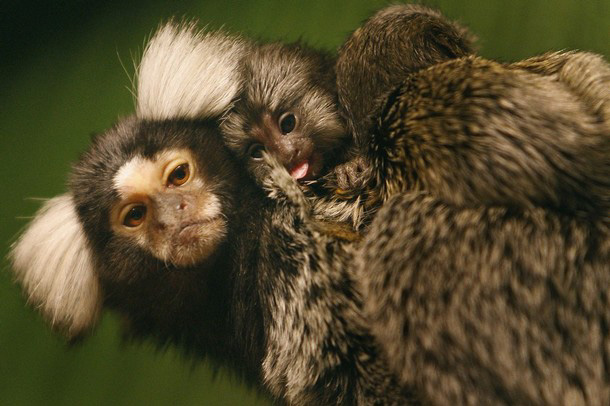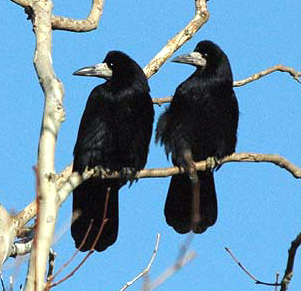Variations in social and cognitive contexts shape helping and cooperative behavior.
While helping and punitive behaviors seem universal among humans, they do vary across cultures. Punishment occurs more readily, for example, in societies with stronger norms of cooperation (Heinrich et al 2006; Herrmann, Thoni and Gächter 2008). Social context affects cooperative behavior. Most monkeys do not help others unless there is a personal benefit.
 One might tend to attribute their behavior to limited cognitive skills (when contrasted with great apes). Yet common marmosets (Callithrix jacchus) in experimental situations do retrieve food for others, even with no clear benefit to themselves. Unlike closely related species, however, the marmosets breed cooperatively. Their social system (here, shared with the great apes) seems to provide a context that fosters the helping behavior (Burkart et al 2007).
One might tend to attribute their behavior to limited cognitive skills (when contrasted with great apes). Yet common marmosets (Callithrix jacchus) in experimental situations do retrieve food for others, even with no clear benefit to themselves. Unlike closely related species, however, the marmosets breed cooperatively. Their social system (here, shared with the great apes) seems to provide a context that fosters the helping behavior (Burkart et al 2007).
 As noted earlier, both chimps (primates) and rooks (birds) can recruit helpers to perform joint tasks. But their behaviors also differ, as do their social organizations. Rooks do not seek or achieve cooperation as frequently as chimps. Their social organization is also simpler. They form single mating pairs that tend to remain for life. Chimps, by contrast, shift mating partners and must also negotiate political allegiances in an unstable dominance hierarchy. The degree of cooperation in each case reflects the respective social demands. In addition, cooperation among individual pairs of rooks reflects their mutual tolerance in other social encounters. Overall, the cooperative behavior is closely linked to the social context (Seed et al 2008).
As noted earlier, both chimps (primates) and rooks (birds) can recruit helpers to perform joint tasks. But their behaviors also differ, as do their social organizations. Rooks do not seek or achieve cooperation as frequently as chimps. Their social organization is also simpler. They form single mating pairs that tend to remain for life. Chimps, by contrast, shift mating partners and must also negotiate political allegiances in an unstable dominance hierarchy. The degree of cooperation in each case reflects the respective social demands. In addition, cooperation among individual pairs of rooks reflects their mutual tolerance in other social encounters. Overall, the cooperative behavior is closely linked to the social context (Seed et al 2008).